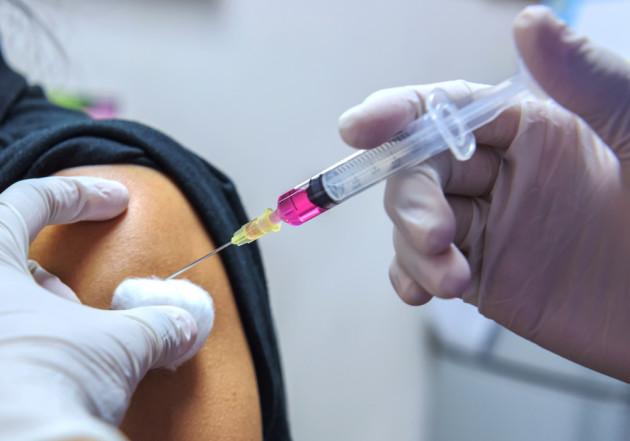
Personalised vaccine for ovarian cancer shows promise in pilot study
A pilot study has found encouraging results regarding ovarian cancer, namely, that a personalised vaccine for this particular type of cancer can nearly double the two-year survival rate.
This personalised vaccine reprogrammed the immune cells of the cancer patients so that they recognised the women's tumours and could thus combat cancerous cells.
The study involved 25 women and was published in the journal Science Translational Medicine.
78 percent of the women given the vaccine, along with immunology drugs, have survived for two years. Only 44 percent of women survived for two years when they were just given immunology drugs.
In order to make the vaccine, immune cells from the patient's blood were exposed to cells from the woman's tumour in order to train them to identify and then initiate an attack against cancerous cells.

The senior author of the study, Dr. Lana Kandalaft, told the Telegraph, “The patients who received the vaccine mounted an immune response against their own tumours.”
As well, the more anti-cancerous cells the patients' bodies produced after the vaccine, the longer the women survived.
Dr. Kandalaft explained: “Ovarian cancer is a silent killer which when diagnosed is usually in its advanced stage.
“A combination of chemotherapy and surgery is usually the standard of care in the primary setting, but 85 percent of patients recur and are left with few other curative options.
“It was demonstrated that about 55 percent of ovarian cancer patients have a spontaneous immune response, and this response actually correlates with better overall survival in these patients.”
After one year, all of the women who received the vaccine were still alive. Only 60 percent of the women who just received the immunology drugs were still alive at one year.

Dr. Kandalaft said that rolling out these personalised vaccines should be fairly straightforward, as the immunology drugs used alongside them are commonly used to treat ovarian cancer.
"We aren't giving patients any completely new drugs in combination with this personalised vaccine," she said.
"Bevacizumab and cyclophosphamide are routinely used to treat recurrent ovarian cancer. All we did was add the vaccine. This means that we should be able to easily integrate this personalised immunotherapy into the current standard of care for recurrent ovarian cancer."
This pilot study's results are welcome news, considering that ovarian cancer is the sixth most common cancer among British women. More than 7,400 new cases are diagnosed in the UK each year.






